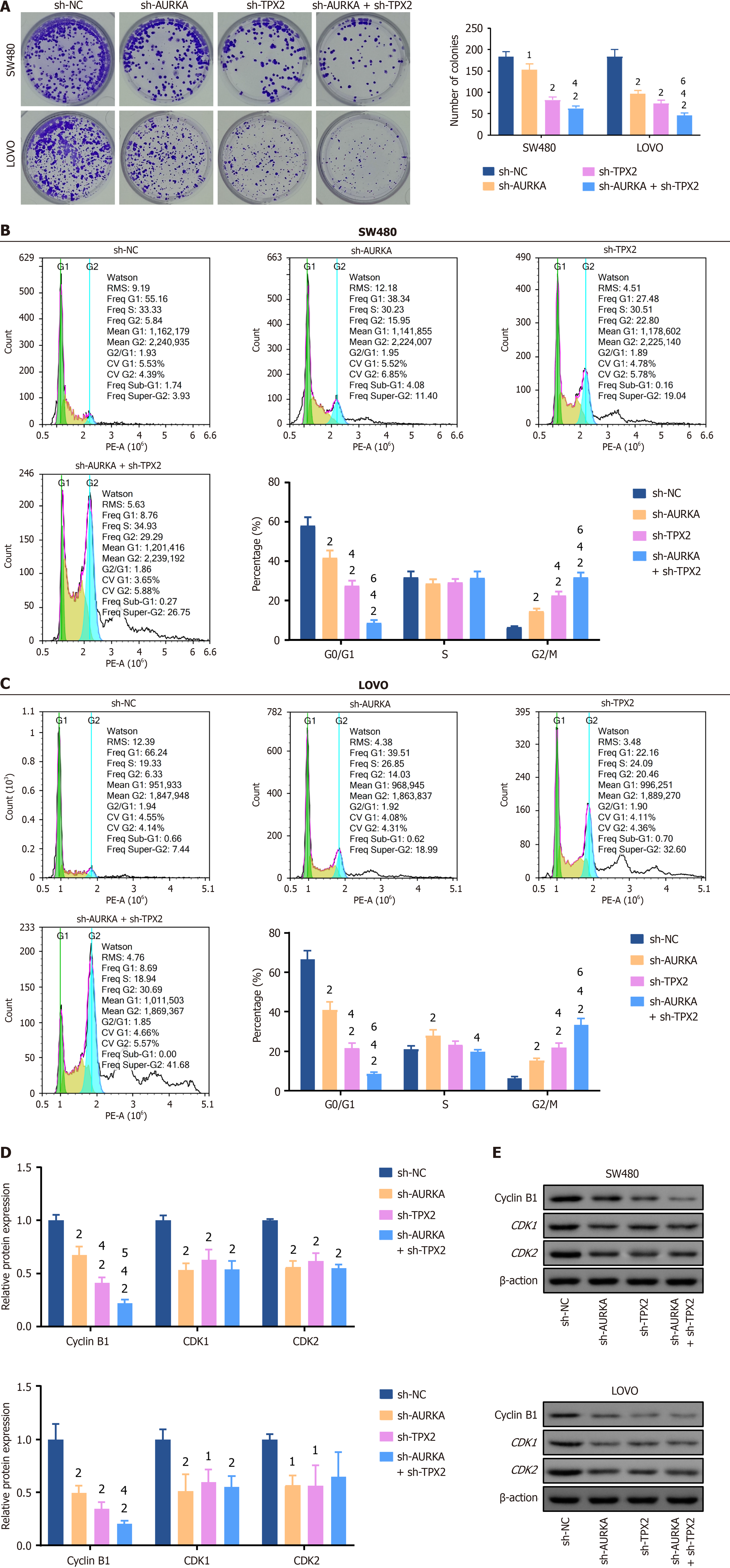Copyright
©The Author(s) 2025.
World J Gastrointest Surg. Jan 27, 2025; 17(1): 97148
Published online Jan 27, 2025. doi: 10.4240/wjgs.v17.i1.97148
Published online Jan 27, 2025. doi: 10.4240/wjgs.v17.i1.97148
Figure 5 Knockdowns of Aurora A and targeting protein for Xklp2 inhibited colorectal cancer cell proliferation ability and decreased cell percentage in the G0/G1 phase.
A: The cell cloning assay was used to determine cell proliferation ability. Knockdown or co-knockdown of Aurora kinase A and targeting protein for Xklp2 (TPX2) inhibited the number of cell colonies; B: Cell cycle in SW480 detected by flow cytometry; C: Cell cycle in LOVO cells was detected by flow cytometry. Knockdown or co-knockdown AURKA and TPX2 decreased cell percentage in the G0/G1 phase; D: Western blotting was used to detect the expression levels of cell cycle-related biomarkers. Cyclin B1, CDK1, and CDK2 expressions were decreased in SW480 and LOVO cells with AURKA and TPX2 co-knockdown; E: The representative bands of western blotting. 1P < 0.05 vs negative control of short hairpin RNA (sh-NC) group. 2P < 0.01 vs sh-NC group. 3P < 0.05 vs short hairpin RNA of AURKA (sh-AURKA) group. 4P < 0.01 vs sh-AURKA group. 5P < 0.05 vs short hairpin-TPX2 (sh-TPX2) group. 6P < 0.01 vs sh-TPX2 group. AURKA: Aurora kinase A; TPX2: Targeting protein for Xklp2; sh-NC: Negative control of short hairpin RNA; sh-AURKA: Short hairpin RNA of Aurora kinase A; sh-TPX2: Short hairpin RNA of targeting protein for Xklp2.
- Citation: Sheng GX, Zhang YJ, Shang T. Synergistic inhibition of colorectal cancer progression by silencing Aurora A and the targeting protein for Xklp2. World J Gastrointest Surg 2025; 17(1): 97148
- URL: https://www.wjgnet.com/1948-9366/full/v17/i1/97148.htm
- DOI: https://dx.doi.org/10.4240/wjgs.v17.i1.97148









